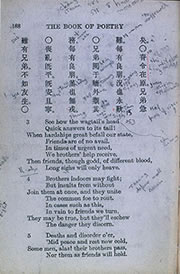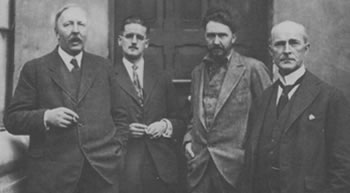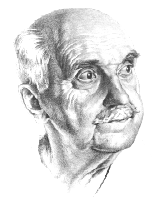January 19, 2004
Petals on a Wet Black Bough:
American Modernist Writers and the Orient
Beinecke Rare Book & Manuscript Library Exhibition,
Yale University, 18 October - 20 December, 1996
Organized by Patricia C. Willis
Book of Chinese Poetry (Shih Ching), translated by James Legge,
annotated by Ezra Pound
© 1997 Beinecke Rare Book & Manuscript Library, Yale University
December 22, 2003
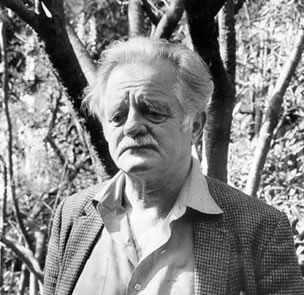
Kenneth Rexroth
22 December 1905 ~ 6 June 1982
I regret not finding time today properly to note Rexroth’s interest in and poems of Japan. The interest brought Japan to a generation of readers and many of those readers to Japan, and the poems are among the most beautiful that have been written of the country in English. I refer among others to the poems of The Heart’s Garden / The Garden’s Heart (Pym-Randall, 1967), On Flower Wreath Hill (Blackfish, 1976), The Silver Swan (Copper Canyon, 1976), The Love Poems of Marichiko (Christopher’s Books, 1978), and The Morning Star (New Directions, 1979, which includes Flower Wreath Hill, Silver Swan, and Marichiko). For now, this, set in Higashiyama, Kyoto, November 1974, from Flower Wreath Hill:
III
The full moon rises over
Blue Mount Hiei as the orange
Twilight gives way to dusk.
Kamo River is full with
The first rains of Autumn, the
Water crowded with colored
Leaves, red maple, yellow gingko,
On dark water, like Chinese
Old brocade. The autumn haze
Deepens until only the
Lights of the city remain.
IV
No leaf stirs. I am alone
In the midst of a hundred
Empty mountains. Cicadas,
Locusts, katydids, crickets,
Have fallen still, one after
Another. Even the wind
Bells hang motionless. In the
Blue dusk, widely spaced snowflakes
Fall in perfect verticals.
Yet, under my cabin porch,
The thin, clear Autumn water
Rustles softly like fine silk.
V
This world of ours, before we
Can know its fleeting sorrows,
We enter it through tears.
Do the reverberations
Of the evening bell of
The mountain temple ever
Totally die away?
Memory echoes and reechoes
Always reinforcing itself.
No wave motion ever dies.
The white waves of the wake of
The boat that rows away into
The dawn, spread and lap on the
Sands of the shores of all the world.
VI
Clustered in the forest around
The royal tumulus are
Tumbled and shattered gravestones
Of people no one left in
The world remembers. For the
New Year the newer ones have all been cleaned
And straightened and each has
Flowers or at least a spray
Of bamboo and pine.
It’s a great pleasure to
Walk through fallen leaves, but
Remember, you are alive,
As they were two months ago.
Image: Photograph by Gerard Malanga, American Poetry Review Records, 1971-1998.
December 21, 2003
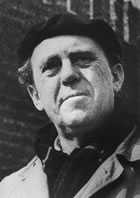
Heinrich Böll
21 December 1917 ~ 16 July 1985
Let’s stop joking, that joke was worn out in any case, after Verdun. They were the last knights—killed in battle, too many knights, too many lovers, all at once—too many well-brought-up young people. Have you ever thought of how much pedagogical sweat was wasted in the space of a few months? All in vain. How was it none of you ever had the idea of setting up a machine gun at the entrance of the trade schools and colleges, right after the exams, and shoot dead all those radiant successful graduates? You think that’s exaggerated? Well, let me say that the truth is pure exaggeration. I danced with the graduates of 1905, 1906, and 1907. They wore their caps, they drank their beer and I drank with them at their student parties—but more than half the students of those three years fell at Verdun.
Billard um halb zehn / Billiards at Half-Past Nine, English translation by Patrick Bowles (1959; Weidenfeld and Nicolson, 1961).
Heinrich
Böll Foundation
An
Essay on the Reason of Poetry, Nobel Lecture, 2 May 1973
December 19, 2003
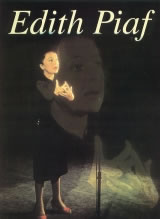
19 December 1915 ~ 11 October 1963
Ah, la Piaf est morte, je peux mourir aussi.
Jean Cocteau (5 July 1889 ~ 11 October 1963), 11 October 1963
Edith Piaf @ radio
france internationale
Edith
Piaf’s Paris, by J. M. Smethurst
EdithPiaf.com
Musée
Edith Piaf
December 18, 2003

Oriental Feast
Paul Klee, 18 December 1879 ~ 29 June 1940
Klee @ WebMuseum,
Paris
Klee @ archive.com
